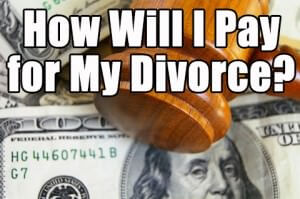
by Robert E. Hornberger, Esq | Oct 8, 2014
 We are pleased and honored to have received the nomination as one of the Best Divorce Lawyers on Long Island again this year. In order to achieve the nomination, we received the most votes from our clients and colleagues during the nomination period from January 1 to August 31st. We are grateful, humbled and thankful that so many of you voted for us to receive the nomination from among all divorce attorneys on Long Island, NY for the second year in a row.
We are pleased and honored to have received the nomination as one of the Best Divorce Lawyers on Long Island again this year. In order to achieve the nomination, we received the most votes from our clients and colleagues during the nomination period from January 1 to August 31st. We are grateful, humbled and thankful that so many of you voted for us to receive the nomination from among all divorce attorneys on Long Island, NY for the second year in a row.
Help Us Get Out the Vote for Best Divorce Lawyer on Long Island
Now that you’ve nominated us, we respectfully request that you to vote for us to win the award as the Best Divorce Lawyer on Long Island. While we’re honored to be nominated, you know there’s no thrill like winning! Please tell your friends and forward them the link to vote for us too.
About the Best of Long Island Awards
Every year from October 1 to December 15, the Bethpage Best of L.I. awards program opens voting for the winner of the Best of Long Island Award. During this 75-day window, anyone can vote for any local business that has previously won the nomination in the earlier poll.
Voting for the Best Divorce Lawyer on Long Island Every Day is Encouraged
Unlike a political vote, multiple voting is encouraged in this award contest. Everyone is allowed to vote once per day for each and every category. We understand that our other respected nominees will be “getting out the vote”, so we encourage you to vote every day if possible. It takes only a few seconds, and we would appreciate your support. Follow us on Twitter @REHornbergerLaw and we’ll remind you to vote often. You can also follow us on Facebook, Google + or LinkedIn.
Support Other Long Island Businesses
Of course, we encourage you to vote for us in the Best Divorce Lawyer category, but you can also vote for other businesses in the Arts and Entertainment, Food & Drink, Nightlife & Spirits, Health and Wellness, restaurants and other categories as designated. Show your support of Local Long Island businesses by voting for them in the Bethpage Best of L.I. awards.
Voting is Open Until December 15, 2014
Once the voting ends, results will be tallied and double-checked for fraudulent voting or obvious abuse, so please don’t attempt to vote more than once a day; your votes will be eliminated.
Click on this link to vote for the Best Divorce Lawyer on Long Island Now
To vote, click on the link in the headline above or copy and paste this URL into your browser: http://vote.longislandpress.com/engine/YourSubmission.aspx?contestid=144511
Then scroll down the page to Divorce Lawyer (it’s the 11th category from the top and click the button next to Robert E. Hornberger, ESQ, P.C. – Melville. To submit your vote, scroll to the bottom of the page, click the checkbox to accept the terms of service and then click the big, red Enter Now button. That’s it! Please vote as often as you can.
Once again, we are truly honored to receive the nomination and we recognize that we could not have done it without the help and support of all our clients and colleagues.
by Robert E. Hornberger, Esq | Sep 23, 2014
 As a Long Island Divorce Lawyer, I have seen that aside from a family member passing away, a divorce is likely one of the most emotional experiences you will go through. In many ways it is a loss similar to a death.
As a Long Island Divorce Lawyer, I have seen that aside from a family member passing away, a divorce is likely one of the most emotional experiences you will go through. In many ways it is a loss similar to a death.
While you may try to prepare yourself for the pain that comes along with a divorce, you may not be prepared for the other myriad of emotions you will experience. There may be days you wake up happy, angry, or full of anxiety, and the better equipped you are to handle a variety of emotions, the better you will cope overall. At times you may want to crawl under the covers and never come out, and while that may be okay for a few hours after a rough day, it is not a conducive coping mechanism. As a Long Island Divorce Attorney, and working with many talented grief counselors, I have become familiar with numerous ways people handle these stresses, and the following are a few suggestions.
- Confide in a Trusted Friend or Family Member. When you were younger, nothing felt better than talking to your closet friend or a parent about something that was deeply troubling you. Regardless of whether or not a solution came of the discussion, the mere fact that someone listened seemed to always make things better. As we grow older and problems become more serious and private, it becomes harder to confide in people, especially about the most emotional issues of our lives. However, that feeling of relief that comes from talking to a loved one is still the same. Pick up the phone and call your best friend or your mom or a sibling. Even if they don’t say anything on the other end, you will feel better to have said the words aloud.
- Seek Counseling. You may not have a solid support system or someone you feel comfortable sharing private matters with. Or you may feel that your friends and family have biased opinions, or rather just give too many opinions. In these instances, there is nothing wrong with seeking counseling to discuss your divorce. Everything said in a counseling session is strictly confidential and nothing can be used against you during your divorce proceedings. A therapist may also be the best person to help you with coming to terms with why you are overjoyed one day but can barely get two feet out of bed the next.
- Eat Well. Remember the old saying “you are what you eat?” Well it’s true. During stressful times, many people tend to turn to junk food: fast food, pizza, cakes, cookies, and other sweets and fried foods. While these things certainly taste good, and are “comfort foods” for a reason, they will not make you feel good in the long run. There’s usually a let down after the binge. Everyone indulges now and again, but try to avoid letting your emotions control your eating habits. You may not think this makes much of a difference, but your divorce on Long Island may last for a year or more, and after a year of fast food for every meal you will inevitably feel slow, tired, and unmotivated and that will not help your self image or your happiness.
- Get Outside. You do not have to be a tri-athlete or marathon runner, but the simple act of getting up and stepping outside can change the mood of your entire day. Weather permitting of course, find a park near your home that has a trail, or head down to the beach boardwalk. Bring your dog, your iPod, a book, or your best friend and just get outside. Whether you walk for a few miles or sit under a tree, a little bit of fresh air and sunlight can do wonders for your mind and your physical and emotional health.
- Spend time with family and friends.We all have been there, that feeling where you would rather be alone than hold even the slightest conversation with anyone. There’s nothing wrong with wanting to be alone with your thoughts, however, when that becomes ALL that you do, you’re heading down an unhealthy path. Humans are social animals. We need to socialize to be healthy. We have all been there to know that once we begin to socialize, we naturally start to feel better. Socializing and spending time with those you care about, and who care about you, allows you to keep your mind occupied and forget, at least for the time being, all the stresses you are dealing with. Call your friends or your siblings and plan to get together for dinner one night, or plan a weekend trip. Besides giving you something to look forward to, it will inevitably hand you a few necessary laughs when you need them most.
The experienced and compassionate Long Island divorce attorneys at Robert E. Hornberger, Esq., PC work with their clients to help them cope with the emotional aspects of their divorce by handling the stressful business and financial aspects so you can take care of your emotional needs. Contact us today at 631-910-1910 for a free consultation to discuss the specifics of your case and how we can help you with the best, most affordable representation.
by Robert E. Hornberger, Esq | Sep 9, 2014
 Litigating your Long Island divorce can become a long, costly drawn-out affair, so most good Long Island divorce attorneys will attempt to help you avoid the time and money associated with litigation in Nassau County or Suffolk County court through alternative divorce methods such as Divorce Mediation or Collaborative Divorce.
Litigating your Long Island divorce can become a long, costly drawn-out affair, so most good Long Island divorce attorneys will attempt to help you avoid the time and money associated with litigation in Nassau County or Suffolk County court through alternative divorce methods such as Divorce Mediation or Collaborative Divorce.
However, for many couples, you and your partner are simply unable to come to an agreement through alternative dispute resolution, making litigation inevitable. In these cases, one spouse may be worried about how they will be able to pay for an attorney, especially if their spouse has significantly more income. There is some good news for you as there is a remedy available to you to help mitigate for the costs and fees you have had to pay your attorney throughout the process.
Thankfully, one does not have to be indigent to be awarded counsel fees during a divorce proceeding. This is not akin to being granted the right to counsel as you would in a criminal matter, rather the main purpose is to avoid one spouse being taken advantage of by the money and power of the other. It simply seeks to even the playing field as much as possible during a difficult time.
How Are Counsel Fees Awarded?
New York’s Domestic Relations Law, which is what is used in Nassau County and Suffolk County courts, was amended in 2010. Prior to those amendments, the party seeking counsel fees had the burden of establishing that justice required he or she be awarded said fees. With the relevant amendments however, a presumption has been created that the less monied spouse is awarded counsel fees. In order to satisfy this burden, both parties to the action are directed to file affidavits detailing the financial agreement between the party and the attorney, including any retainer, hourly fee charged, and amounts paid or due, and a statement of net worth which details the party’s income and all expenses. While parties are entitled to counsel fees for expert witnesses, it does not seem that the presumption of granting such to the less monied spouse is applicable to those fees.
For Which Actions Are Counsel Fees Available?
New York’s Domestic Relations Law § 237 provides that counsel fees may be awarded in an action for an annulment, separation, divorce, or certain actions relating to marriages or divorces obtained outside of the jurisdiction of New York. As always, this is not an exhaustive list and you should check with your Long Island divorce attorney to determine if you may apply for counsel fees for your court action. Additionally, this presumption is applicable to any action brought for modification of a separation agreement or judgment of divorce; which can include child support or spousal maintenance payments.
Is This Available After the Final Judgment?
The presumption that the non-monied spouse is entitled to counsel fees is applicable only to relief requested during the course of the litigation. Therefore, you must file your application before the final judgment of the action.
How are Awards for Counsel Fees Determined?
Notwithstanding the presumption of awarding counsel fees to the less-monied spouse, the monied spouse has the opportunity to rebut that presumption. The court will look to the income of both parties, the necessity of the legal services, whether one party has dragged his or her feet and caused counsel fees to be greater than necessary, how complex the litigation was, and whether the amount requested is reasonable. Therefore, while the presumption placed in Domestic Relations Law § 237 favors the less monied spouse in the award of counsel fees, the monied spouse can point to a variety of factors to defend against this.
What Does This Mean for Me?
If you are the less-monied spouse it is important to submit your statement of net worth and all relevant affidavits proving your financial relationship with your Long Island divorce attorney. Failing to do so will cause the court to look disfavorably upon you and may affect the court in its decision on whether or not to award you counsel fees.
On the other hand, if you are the monied spouse and seek to avoid paying a large sum of counsel fees to your partner, you should keep track of all legal action taken by your partner. While it is rare that an attorney will file motions or drag his or her feet just to harass or annoy the opponent, it is not unheard of for a client to refuse to reasonably cooperate. While negative for your partner, this may be beneficial to you as courts will look at this as a reason to not award counsel fees.
The experienced and compassionate Long Island divorce attorneys at Robert E. Hornberger, Esq., PC work with their clients to keep their fees as reasonable as possible. We consult with our clients to investigate alternative dispute resolution programs that can keep your costs, and stress, as low as possible. We also offer excellent financing programs to ensure you can afford the best representation available. Should you need assistance of the courts, we are here to help prepare your case for Nassau County or Suffolk County courts. Contact us today at 631-910-1910 for a free consultation to discuss the specifics of your case and how we can help you with the best, most affordable representation.
by Robert E. Hornberger, Esq | Aug 12, 2014
 As a Long Island Divorce Attorney with nearly 15 years of legal experience, there is nothing more frustrating for me than driving down a road and seeing a sign which says “$399 Divorce. Spouse’s Signature Not Required.” Or, more recently, “Uncontested Divorce as low as $450”. Sadly, this is absolute nonsense, misleading many Long Islanders into contacting firms that cannot perform as advertised.
As a Long Island Divorce Attorney with nearly 15 years of legal experience, there is nothing more frustrating for me than driving down a road and seeing a sign which says “$399 Divorce. Spouse’s Signature Not Required.” Or, more recently, “Uncontested Divorce as low as $450”. Sadly, this is absolute nonsense, misleading many Long Islanders into contacting firms that cannot perform as advertised.
A Spouse’s Signature is Required to Obtain an Action for Divorce on Long Island
Why do I say this? The answer is simple; in an Action for Divorce in any New York court, your spouse must receive personal notice of the divorce action. That means that your spouse must be personally served with the Summons for divorce. In plain English, a process server must personally hand your spouse the divorce summons (along with copies of certain required notices known as the “Automatic Orders”). In lieu of personal service, your spouse can accept service and sign an admission. In any case, your Spouse’s Signature is still Required.
Upon receiving personal service of the summons, your spouse has two (2) options:
- Ignore Service of Summons. They can ignore the fact they were served, in which case, they will be in Default. If this happens, then yes, your divorce will be obtained without your spouse’s signature, however, if you have children, you will still have to appear in court for a hearing called an Inquest to determine custody, visitation and support of your children. I have handled over a thousand (1,000) divorce cases and have only seen a default occur a handful of times, not great odds for the “Spouse’s Signature Not Required” representation.
- Appear & Defend Divorce Action. Your spouse can appear and defend the divorce action (which is far more likely than a Default), in which case, their signature for an uncontested divorce will certainly be required.
Court and Other Fees Add Up to More Than $399
Advertising a Long Island Divorce for $399 is also misleading because the minimum filing fees for a divorce alone are $335 which does not include the fee for a settlement agreement ($35) as well as the fee for the process server (usually $50.00 to $150.00), nor does it include the fee for a certified copy of your divorce ($5.00 so long as your judgment does not exceed 4 pages). Therefore, the filing fees alone can be no less than $390.00 (that’s $335.00 minimum plus $50.00 minimum for the process server plus $5.00 for the certified copy).
$399 Doesn’t Get You a Long Island Divorce Lawyer
What the “$399.00 Divorce” folks don’t tell you is that the forms are prepared by non-lawyers, and then, you are responsible for everything else. That means you have to purchase your own index number, have your spouse served, hope they Default, and then, you have to file your own papers with the Court and pay your own filing fees. You have to make your own copies and obtain your own Certified Copy of the Divorce Judgment. This means that you will appear in court yourself no less than three (3) times, which will likely require you to take days off from work.
What Does Your ‘$399.00 Divorce’ Get You?
Well, it gets you a pile of forms you can prepare for yourself by visiting the New York State Court website with instructions on how to complete your own divorce (also available on the website). No legal advice and no one to help you navigate the complex waters of divorce in Nassau County or Suffolk County. Of course, if your spouse appears in the action, which is far more likely than a Default, you will have to go to court. At that point, you should hire an attorney to represent you, since your spouse will likely have one.
Do You Know the Rules of Divorce in a Long Island Courtroom?
A divorce is a civil action like any other. There are rules and procedures and there is a lot at stake when it comes to your assets, your children, support and your future. As a Long Island Divorce Attorney, I can tell you with absolute confidence that there is virtually no such thing as a “$399.00 Divorce”. You should seek the advice of a professional qualified divorce attorney to assist you with properly preparing your pleadings, having your spouse served and navigating the Long Island Divorce Courts.
Free Consultation from an Experienced, Compassionate Long Island Divorce Attorney
What’s Better than 399? — Free!
To learn more about what you need to know about How Much a Divorce Costs and how to get help to protect yourself and your future, visit this page: https://divorce-longisland.com/divorce-cost/ Rather than get taken by the claims of a “$399 Divorce”, you owe it to yourself, your children and your future to speak with an experienced Long Island divorce attorney who can protect your interests. The initial consultation is free, so there’s no risk and no obligation. Just call us at 631-923-1910 to set up an appointment for a free divorce consultation. Your initial consultation will be a casual, no-cost meeting where we get to know each other. You will meet directly with Robert E. Hornberger, Esq., not a paralegal or junior associate. During our meeting, we’ll describe the divorce process and learn about the details of your unique situation. Then we can discuss the many divorce options available to you, from a litigated, contested divorce, to a mediated or collaborative no-fault divorce. Together, we’ll determine which is the right solution for you and your unique circumstances. Give us a call today. You’ll be glad you did.
by Robert E. Hornberger, Esq | Jul 29, 2014
 As a Divorce Lawyer on Long Island, I have helped many individuals through the process of divorce litigation and many couples through the process of divorce mediation or collaborative divorce law in order to settle their divorce cases. While many individuals or couples getting divorced believe the only option is to fight to win or prove a point, eventually most divorce cases settle.
As a Divorce Lawyer on Long Island, I have helped many individuals through the process of divorce litigation and many couples through the process of divorce mediation or collaborative divorce law in order to settle their divorce cases. While many individuals or couples getting divorced believe the only option is to fight to win or prove a point, eventually most divorce cases settle.
In my experience, I have observed the following common keys to settlement of divorce cases on Long Island:
- Know Your Goals: In a divorce case, obtaining a divorce is always a general goal, but, you also need to determine your specific goals for yourself and your family. A goal isn’t just, “I want the house,” it is more abstract than that. You need to understand the “Whys” of your goals. I want the house can mean “I want a sense of security,” or, “I don’t want our children to be forced to move.” Goals are very rarely about objects or things. Goals are statements about our desires. You will be best served to write down your goals for yourself and your children because if you don’t, it is just a thought. Writing it down gives your thoughts meaning once you understand the “Whys” behind it. Once you have written your goals down, you can work with your divorce lawyer to develop a plan to achieve those goals. There are many methods to achieving your divorce on Long Island and understanding your goals and objectives will go a long way toward determining the best, most practical method of achieving your divorce. Some goals are better achieved through divorce litigation, but, if you and your spouse share common goals regarding your children, then, settlement is probably your best option. If you and your spouse can agree upon your goals, you might be best served with an alternative dispute resolution process like divorce mediation or collaborative divorce.
- Know the Law: Knowing the law is key to formulating a good settlement. Clients often ask me, “How do I know whether a settlement is good without knowing the law?” The law is an important factor in developing a settlement, but, it should not be the deciding factor. What I mean is that if you want the resolution of your divorce case to mirror “the law,” then you can simply have a trial and let the judge make the decision. The judge is bound to follow the law, but when you and your spouse negotiate your own settlement, you can pick and choose what aspects of the law to follow and others from which you want to deviate in order to achieve the best resolution for you and your family. On Long Island, divorce cases are governed by the New York State Domestic Relations Law.
There are 3 Main Elements to Resolve:
The main principle which governs custody and visitation is the best interests of the children. Support of children is governed by the Child Support Standards Act which provides a formulaic way of calculating child support. There is no formula for calculating spousal support upon the conclusion of a divorce case it is governed by 20 statutory factors. Finally, distribution of marital assets and marital debts are governed by the Equitable Distribution Law which basically guides courts in determining a fair distribution of assets and debts. Fair does not necessarily mean equal.
- Know How to Compromise: A wise Long Island Divorce judge often told litigants that a good settlement in a divorce case was like dining at a fine French restaurant: the meal tasted good, but on the way home, you need to stop for a sandwich because you are still hungry. A good settlement is much the same: some aspects taste good to you, but, you are still craving more. If your spouse feels the same way, then, the settlement is probably fair. In other words, no one gets everything they want from a fair divorce settlement. You have to give a little to get a little. A good settlement would not leave one spouse completely happy and the other upset and feeling taken advantage of. When both individuals feel they got what they needed, but not everything they wanted, then the settlement is probably fair. Another way of saying this is you are probably not going to get everything you want. You may be thinking “Why is my divorce attorney saying this?” I tell clients that I am saying this because it is true. If you both want the house or custody of your children, someone is going to lose, but, if you settle and compromise, you might find a way for both of you get something you want without feeling as though you have lost everything.
- Know When it is Time to Move On: Divorce is not easy and brings with it a wide range of emotions. Sometimes individuals fight during a divorce to prove a point to the other side. But, standing on your principles can come at a cost. The practice of divorce law is an hourly practice just for this reason. Your divorce lawyer has no idea how long your divorce case will take to resolve. One hour, 10 hours, 100 hours, etc. – it all depends upon you and your spouse and how willing you are to negotiate. Also, the Divorce Courts on Long Island are over worked; there are simply not enough judges for the number of divorce cases waiting to be heard. So, if you wish to battle to prove a point, plan on spending 10s of thousands of dollars and possibly years of your life. If your divorce case lasts two years and you live to be 80 years old, that means you would have spent 2.5% of your life fighting against one individual. Is that how you want to spend your life. Life is too short, let your divorce lawyer help you make calculated decisions so that you can find a fair compromise and settle your case so that you don’t spend your future and needless years of your life fighting in court. Also, if your divorce lawyer seems more interested in fighting with your spouse or the other attorney than you are, it is possible that your divorce lawyer is looking to play your emotions into a long drawn out divorce case to make more money. Don’t become a victim in that regard either. Your divorce lawyer is supposed to be working for your interests, not his or her own. Always remember that you are allowed to change divorce lawyers during your case if you are not happy.
Practical Insight from a Long Island Divorce Lawyer
I hope that sharing the insight I have gained as a practicing divorce lawyer on Long Island helps you reach a fair and amicable settlement of your divorce case. If you have any questions regarding the unique circumstances of your divorce case please contact our office at 631-923-1910 to schedule your free consultation.
by Robert E. Hornberger, Esq | Jun 17, 2014
 There are many causes of Divorce on Long Island. Perhaps your spouse has cheated on you and committed the ultimate betrayal, or maybe you are the guilty party who is now being denied access to the marital residence. On the other hand, perhaps he or she has just stopped supporting you. You may be wondering what recourse is available to you and how you can go about getting yourself and your family back on its feet. If the thought of a divorce has entered your mind, you will be thankful to know that under New York’s Domestic Relations Law, abandonment by the spouse for more than one year is an express ground for granting a divorce.
There are many causes of Divorce on Long Island. Perhaps your spouse has cheated on you and committed the ultimate betrayal, or maybe you are the guilty party who is now being denied access to the marital residence. On the other hand, perhaps he or she has just stopped supporting you. You may be wondering what recourse is available to you and how you can go about getting yourself and your family back on its feet. If the thought of a divorce has entered your mind, you will be thankful to know that under New York’s Domestic Relations Law, abandonment by the spouse for more than one year is an express ground for granting a divorce.
What are Some Examples of Behaviors that Qualify as Spousal Abandonment?
Maybe you are now wondering if what you or your spouse has done qualifies as abandonment, which seems like such a harsh and negative word. As always, consult the specifics of your case with your Long Island divorce attorney to ensure you are being given the proper legal information, but the following are a few examples of things which the New York Courts have declared sufficient (and insufficient) criteria to establish abandonment and therefore grounds for divorce.
Abandonment by lockout. This occurs when one spouse changes the locks on the marital residence or wherever he or say may be residing. Upon changing the locks, the spouse subsequently prohibits his or her partner access to the marital or other residence. However, there are limitations on this doctrine that negate the assumption of abandonment by lockout. New York courts have held that if the lock-out is justified, such as the spouse who is being excluded engaged in an extra marital affair, there cannot be abandonment by lock-out on behalf of the excluding spouse. Additionally, abandonment by lockout is justified when it is the result of a spouse’s fear for his or her life or safety. Therefore, in order for a lock-out to qualify as abandonment, it must be unjustified and done purposefully.
- Refusal to engage in marital relations. If your spouse continuously refuses to engage in marital relations, you may have grounds for abandonment. However, again these refusals cannot be justified, such as refusal due to the requesting party having engaged in an extra marital affair. Rather, in order to qualify for abandonment the refusal must be purposeful, unjustified, and willful. While the refusal of such relations may cause for hard feelings, that alone is not enough to establish that your spouse abandoned you, it has to be shown that it was done with a negative purpose.
- Leaving the marital home without the intent to return. If your spouse has left the marital residence and does not intend to return, this situation likely presents one in which you may be granted a divorce on grounds of abandonment. A supporting fact here would be if your spouse has left the marital residence and has cut off all support, which of course includes financial support. However again, your spouse’s leaving without the intent to return must be unjustified.
- Protective orders. A protective order, which is a binding legal document issued by the courts, can legally prevent a spouse from entering the marital residence or being within a certain distance from his or her partner. If a spouse obtains a protective order prohibiting his or her partner from entering the marital residence, this does not qualify as abandonment and therefore cannot be grounds for divorce.
The above-mentioned are only a few examples of instances in which Long Island Divorce Courts have discussed abandonment as grounds for divorce. While some of the discussed actions may seem hurtful, so long as they were done with adequate justification, courts are reluctant to define them as abandonment. Each situation is different; in one instance a lockout may constitute abandonment but fall short in the next. Therefore, be sure to discuss the specific facts and circumstances of your individual situation with your Long Island divorce attorney in order to reach the best conclusion possible.
Our Compassionate and Aggressive Long Island Divorce Attorneys are Here to Help
The divorce attorneys and divorce mediators at the law firm of Hornberger Verbitsky, P.C. are here to help you negotiate the intricacies of your Long Island divorce. Contact us for a free consultation at 631-923-1910 or fill out the short form on this page.
by Robert E. Hornberger, Esq | Oct 24, 2013
 With a steady rise divorce rates in Nassau County and Suffolk County, NY, has come an increase in the number of people who decided to represent themselves in their divorce proceedings on Long Island. This is known in legal parlance as proceeding pro se in their divorce, or, without the representation of legal counsel. Of course, as a divorce lawyer practicing on Long Island, you will expect me to rail against such a trend, but for the purposes of this article I will stick to the published facts and draw no conclusions one way or the other.
With a steady rise divorce rates in Nassau County and Suffolk County, NY, has come an increase in the number of people who decided to represent themselves in their divorce proceedings on Long Island. This is known in legal parlance as proceeding pro se in their divorce, or, without the representation of legal counsel. Of course, as a divorce lawyer practicing on Long Island, you will expect me to rail against such a trend, but for the purposes of this article I will stick to the published facts and draw no conclusions one way or the other.
There are actually two primary issues that must be addressed in assessing the relatively recent development of increased pro se divorce proceedings.
- Given the complexity of the law and the potential long-lasting negative legal and financial ramifications, why would an individual choose not to hire a divorce attorney?
- Are there statistically relevant data points describing the relative success of pro se divorce litigants successful in relation to individuals who obtain legal counsel in their divorce actions?
Why the Rise in Divorce Rates in New York?
With the adoption of No-Fault Divorce legislation in many states in the 1970s, divorce rates steadily increased in New York over the following decades. No-Fault Divorce laws make it possible for one party to obtain a divorce, even without the consent or cooperation of another and by 2001, all 50 states in the U.S. had added No-Fault Divorce provisions to their divorce laws. The adoption of No-Fault Divorce statutes has ultimately led to an increase in divorce rates not only on Long Island and in New York state, but nationwide.
Studies of Pro Se Divorce Cases in the U.S.
Shorter Marriages, Low-Income, Younger, Well-Educated, Childless, without Real Estate or Personal Property More Likely to Proceed in Pro Se Divorce
In a 1994 publication, the American Bar Association Standing Committee on the Delivery of Legal Services cited several studies which documented a steady increase in pro se divorce cases from the 1970s through the 1990s. This report noted that those who were turning to self-representation generally had low to moderate incomes. The Standing Committee further identified that pro se litigants tended to be fairly well-educated, and were on average, younger than those who were represented by counsel. Litigants were also more likely to proceed pro se if they regarded their cases as being relatively “simple.” Specifically, those with no minor children, no real estate, or substantial personal property, and who had been married less than 10 years were much more likely to represent themselves in divorce proceedings.
Pitfalls of Divorce Pro Se
Missing Court Forms, Documentation, Marital Counseling, Alternative Dispute Resolution, Tax Ramifications, Maintenance or Spousal Support
Although the Standing Committee report did not evaluate the desirability of proceeding pro se in divorce proceedings, it did note some potential limitations to doing so. In particular, pro se litigants were less likely to fill out necessary court forms and documentation, obtain information regarding marital counseling and alternative dispute resolution services, receive important information pertaining to tax related issues, and were also much less likely to request maintenance in their divorce cases.
Income of Husband & Minor Children Main Factors in Pro Se Divorce
In 2010, Judith G. McMullen and Debra Oswald sought to explore this issue further by conducting a case study on pro se divorce litigants in Waukesha County, Wisconsin. 12 J. L. & Fam. Stud. 57. The data revealed that in 46.4% of the divorce cases studied, both parties had counsel and in 27.7% of the cases, both individuals proceeded pro se. Their research also revealed that the strongest factors indicating whether an individual would proceed pro se were the income of the husband and whether the parties had minor children. The data further demonstrated that in cases where parties chose to retain legal counsel, the husbands involved in the actions earned significantly more money than those involved in the pro se cases. Similarly, the presence of young children within a marriage increased the likelihood by 60 percent that an individual party would hire legal representation in a divorce action, likely because of Child Support and Child Custody issues.
The researchers additionally focused on whether the presence of a divorce attorney improved and expedited the divorce process. The data revealed that divorce proceedings were significantly lengthier in cases where both the husband and wife were represented by counsel, compared to situations when only one party retained counsel. Moreover, the average length of a divorce case was statistically shorter when both parties were pro se than in all other situations. However, it is unclear whether this correlation was based upon the presence of counsel or the complexity of the cases in which the parties chose to retain legal counsel.
Protection of Rights & Assets Main Factors in Hiring Divorce Attorney
In addressing the question as to why people choose to proceed pro se in divorce actions, one notion is that the decision is often based on financial considerations. As previously mentioned, in the case study, the husband’s income was one financial indicator of a party’s choice to retain counsel. Those who hired counsel were older and had been married longer at the time of divorce. In turn, age and length of marriage both suggest higher levels of education, making one more receptive to seeking the advice of an attorney. People who have been married longer might also feel that they have more to lose, so they are willing to pay for the cost of an attorney to protect their rights and assets. The decision of parties to retain counsel when minor children are involved can be traced to a parent’s desire to have custody or otherwise shape the future of their children.
Pro Se Initially More Cost Effective
While it may be more cost-effective to proceed pro se in divorce cases, those considering this approach to litigation should fully understand all of the potential ramifications that go along with representing oneself in a lawsuit. It is important to be informed of all of your rights in any legal proceeding, especially one that will weigh heavily on your and your family’s future.
Free Consultation to See if Pro Se is Right for Your Nassau, Suffolk, Long Island Divorce
If you are considering filing for divorce pro se in Nassau County or Suffolk County court, I would encourage you to seek the advice of an experienced divorce attorney. While you may save money in attorney fees initially, you should fully understand the rights and property you may forfeit long-term, which could be significantly more expensive than an attorney’s fees. The firm of Hornberger Verbitsky, P.C. is pleased to offer a complimentary initial divorce consultation at which we can discuss the viability of representing yourself in your divorce case. If your case is simple and you have no children, property and relatively low income, pro se might be the way to go for you. You have nothing to lose and everything to gain by finding out before you file – the initial consultation is free and you may learn something that will help you represent yourself. Call us at 631-923-1910 for your free consultation at our offices convenient to Nassau and Suffolk counties.
For more information about Divorce on Long Island, visit this page: Divorce Lawyers Answer Questions about Long Island Divorce

by Robert E. Hornberger, Esq | Oct 10, 2013
We are pleased and honored to have received the nomination as one of the Best Divorce Lawyers on Long Island this year. In order to achieve the nomination, we received the most votes from our clients and colleagues during the nomination period from July 1 and August 31st. We are grateful, humbled and thankful that so many of you voted for us to receive the nomination from among all divorce attorneys on Long Island, NY.
Help Us Get Out the Vote for Best Divorce Lawyer on Long Island
 Now that you’ve nominated us, we respectfully request that you to vote for us to win the award as the Best Divorce Lawyer on Long Island. While we’re honored to be nominated, you know there’s no thrill like winning! Please tell your friends and forward them the link to vote for us too.
Now that you’ve nominated us, we respectfully request that you to vote for us to win the award as the Best Divorce Lawyer on Long Island. While we’re honored to be nominated, you know there’s no thrill like winning! Please tell your friends and forward them the link to vote for us too.
About the Best of Long Island Awards
Every year from October 1 to December 15, the Bethpage Best of L.I. awards program opens voting for the winner of the Best of Long Island Award. During this 75-day window, anyone can vote for any local business that has previously won the nomination in the earlier poll.
Voting for the Best Divorce Lawyer on Long Island Every Day is Encouraged
Unlike a political vote, multiple voting is encouraged in this award contest. Everyone is allowed to vote once per day for each and every category. We understand that our other respected nominees will be “getting out the vote”, so we encourage you to vote every day if possible. It takes only a few seconds, and we would appreciate your support. Follow us on Twitter @REHornbergerLaw and we’ll remind you to vote often. You can also follow us on Facebook, Google + or LinkedIn.
Support Other Long Island Businesses
Of course, we encourage you to vote for us in the Best Divorce Lawyer category, but you can also vote for other businesses in the Arts and Entertainment, Food & Drink, Nightlife & Spirits, Health and Wellness, restaurants and other categories as designated. Show your support of Local Long Island businesses by voting for them in the Bethpage Best of L.I. awards.
Voting is Open Until December 15, 2013
Once the voting ends, results will be tallied and double-checked for fraudulent voting or obvious abuse, so please don’t attempt to vote more than once a day; your votes will be eliminated. UPickEm, a third party administrator, runs the Bethpage Best of L.I. voting pages to eliminate even the potential appearance of impropriety.
Click on this link to vote for the Best Divorce Lawyer on Long Island Now
To vote, click on the link in the headline above or copy and paste this URL into your browser: http://vote.longislandpress.com/engine/YourSubmission.aspx?contestid=105204
Then scroll down the page to Divorce Lawyer (it’s the 11th category from the top and click the button next to Robert E. Hornberger, ESQ, P.C. – Melville. To submit your vote, scroll to the bottom of the page, click the checkbox to accept the terms of service and then click the big, red Enter Now button. That’s it! Please vote as often as you can.
Once again, we are truly honored to receive the nomination and we recognize that we could not have done it without the help and support of all our clients and colleagues.
by Robert E. Hornberger, Esq | Sep 12, 2013
 In the recent Suffolk County Supreme Court decision, Salamone v. Cohen, a Long Island divorce attorney’s retainer agreement was deemed null and void as the court found that “the document contained a number of disturbing provisions,” one of which included usurious interest rates. In light of this decision, it is important that you remain vigilant to ensure that your divorce attorney does not overcharge you for his or her legal services.
In the recent Suffolk County Supreme Court decision, Salamone v. Cohen, a Long Island divorce attorney’s retainer agreement was deemed null and void as the court found that “the document contained a number of disturbing provisions,” one of which included usurious interest rates. In light of this decision, it is important that you remain vigilant to ensure that your divorce attorney does not overcharge you for his or her legal services.
Long Island Divorce Attorney Files Suit Against Client & Loses
In Salamone v. Cohen, the plaintiff-attorney commenced a breach of contract action against the defendant, a former client, claiming that she failed to pay the sum of $42,161.49 in legal services, along with $10,540.37 in counsel fees and interest at 18% per annum, pursuant to the plaintiff’s retainer agreement signed by the defendant. In the defendant’s opposing papers, she alleged, among other things, that the plaintiff stated that the cost of representation was estimated to be around $5,000.00, and “that she was the victim of ‘massive over-billing,’” and that the plaintiff was “opportunistic in trying to get more money.” Considering the defendant’s serious allegations, the court stated that they were “perplexed” that the plaintiff failed to file reply papers to the defendant’s opposition. (more…)

by Robert E. Hornberger, Esq | Jul 11, 2013
Helpful Long Island Divorce Lawyer Advice
 In our years of experience as divorce lawyers on Long Island, we’ve helped hundreds of families with their divorce. Over this time, we’ve seen parents who have helped their children through the divorce and others who have made the situation worse. While we are hired to handle the legal issues involved in the divorce in Nassau County and Suffolk County Court, we cannot help but try to counsel parents on the best ways we’ve seen to help families get through it with as little stress and negative emotional impact as possible.
In our years of experience as divorce lawyers on Long Island, we’ve helped hundreds of families with their divorce. Over this time, we’ve seen parents who have helped their children through the divorce and others who have made the situation worse. While we are hired to handle the legal issues involved in the divorce in Nassau County and Suffolk County Court, we cannot help but try to counsel parents on the best ways we’ve seen to help families get through it with as little stress and negative emotional impact as possible.
Help Your Child Deal With Your Divorce
Thousands of children watch their parents go through a divorce every year. As a parent, it is important for you to recognize that while you are dissolving your marriage, your divorce is affecting your children as well. How you handle your divorce with your children can have a great impact upon their emotional and psychological development for many years to come
Every Child Handles Divorce Differently
As with most things in life, there is no set formula to making sure your child does not become negatively affected by the divorce. Each child is unique and the impact will be influenced by their emotional development, age, personality, and the unique circumstances of the parental separation and divorce. Common emotions a child may feel can include shock, sadness, frustration, anger and worry. How you help your children deal with these emotions will affect how they cope with other stresses over time. Your divorce can make them stronger or weaker, depending upon how you handle it.
How to Help Your Child Through Your Divorce
In our experience as divorce attorneys on Long Island, and working with child care professionals on a regular basis, we’ve learned a few things parents can do to help their children during the process of their parents’ divorce, including:
- Keep any visible conflict, heated discussions, and legal talk away from the children
- Minimize disruptions to the child’s daily routines as much as possible
- Confine all blame and negative comments about your spouse to private therapy sessions or conversations with friends outside the home
- Keep both parents involved in the child’s life
- If needed, allow the child to see a therapist
Reduce the Divorce Stress on Your Child
Divorce requires a lot of flexibility and acceptance of changing family dynamics. Your children are extremely impressionable and it is imperative for their future well-being to make sure their memories of this process include as few, if any traumatic instances that could impede their development or have other negative effects on them for the rest of their lives.
We Can Help. Call for a Free Consultation
There are a number of methods and strategies to obtaining a divorce. Some divorce methods, like divorce mediation, can sometimes be beneficial to helping you and your spouse maintain a more positive relationship for your children during and after your divorce. If you have any questions regarding how to best protect your children during your divorce, give us a call at 631-923-1910. The divorce law office of Robert E. Hornberger, P.C. will be pleased to offer you a free complimentary consultation to discuss any aspect of your divorce.

 We are pleased and honored to have received the nomination as one of the Best Divorce Lawyers on Long Island again this year. In order to achieve the nomination, we received the most votes from our clients and colleagues during the nomination period from January 1 to August 31st. We are grateful, humbled and thankful that so many of you voted for us to receive the nomination from among all divorce attorneys on Long Island, NY for the second year in a row.
We are pleased and honored to have received the nomination as one of the Best Divorce Lawyers on Long Island again this year. In order to achieve the nomination, we received the most votes from our clients and colleagues during the nomination period from January 1 to August 31st. We are grateful, humbled and thankful that so many of you voted for us to receive the nomination from among all divorce attorneys on Long Island, NY for the second year in a row.





 With a steady rise divorce rates in Nassau County and Suffolk County, NY, has come an increase in the number of people who decided to represent themselves in their divorce proceedings on Long Island. This is known in legal parlance as proceeding pro se in their divorce, or, without the representation of legal counsel. Of course, as a divorce lawyer practicing on Long Island, you will expect me to rail against such a trend, but for the purposes of this article I will stick to the published facts and draw no conclusions one way or the other.
With a steady rise divorce rates in Nassau County and Suffolk County, NY, has come an increase in the number of people who decided to represent themselves in their divorce proceedings on Long Island. This is known in legal parlance as proceeding pro se in their divorce, or, without the representation of legal counsel. Of course, as a divorce lawyer practicing on Long Island, you will expect me to rail against such a trend, but for the purposes of this article I will stick to the published facts and draw no conclusions one way or the other.














